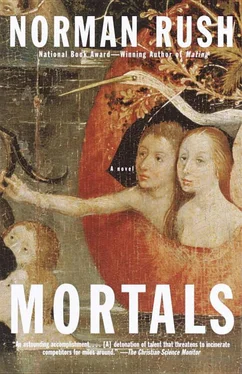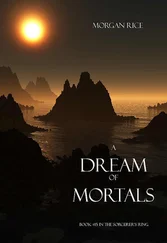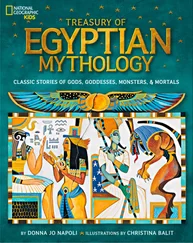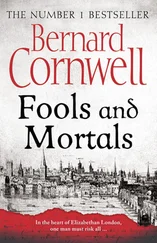Now Morel was climbing up to join them. There were going to be too many cooks.
Morel was carrying Ray’s Strange News bundle. “Here, take it,” he said to Ray, arriving at the summit.
“Thanks, but what made you think of it?” Ray asked.
“I don’t know. Some of the guys were looking around for paper. You can imagine why. They wanted to know if I had any tissues, papiri. I don’t know if any of them understood clearly that what you were carrying around was a treasure of toilet paper, but I thought I would just preemptively get it. So thank me again.” Everyone was feeling better, slightly better, slightly stronger. That was evident.
“We are having a summit meeting,” Morel said. No one said otherwise. There was silence.
“It is,” Kerekang said. His mind was still in a floating state, thanks to dagga, still half there, still showing a tendency toward compliance with the world as it was developing, the real world.
Kevin said, “I … I … rra, I want to be home. If I can. I have written a letter to you.” He handed a folded sheet of paper to Kerekang, who stuck it to his waistband, nonchalantly, not receiving it in the correct manner, Ray felt.
They were becoming a conspiracy, it felt like, a sauve qui peut thing, and his hat was off to the French for their beautiful precisions, especially when it came to treachery.
Kevin was speaking. He was reporting that there was fear being expressed among comrades about staying too long there. It wasn’t fear of being tracked to the spot by koevoet foot soldiers, it was fear of helicopters seeking them out from bases in Caprivi, once the news was out about what had been accomplished at Ngami Bird Lodge.
Kevin was saying, “We shall paint you with fire, is what koevoet says, when they threaten you. This is what they did in SouthWest.”
Kevin was hugging himself. It was cold.
“You must come and talk to Mokopa, Setime,” Kevin said.
“Why must I?”
“Because he is afraid about the vehicles. He says they can track them and find us. That koevoet will come seeking us because we’ve struck them in their pride.”
Ray said, “I thought everyone was falling asleep down below.”
“Nyah, they are awake. They are having a meeting. You can see they have built the fire high again.”
Morel said, “It’s too high. I thought we were supposed to keep the fire to a minimum.”
Kerekang sighed heavily. He got up to descend the monadnock. Morel stopped him.
Morel said, “Wait a minute. Let me understand …”
Kevin said, “They say they are freezing and the fire will be for only until they can get warm. And they are saying they want to hide I don’t know where. Hide for some days.”
Morel, speaking quickly, said to Kevin, “So they want to abandon the trucks …”
Kevin said, “Mokopa says koevoet has strong forces in Caprivi and he knows they have helicopters. And this makes them look bad, so it will be necessary for them to come after us. He says we should do as Joshua Nkomo did when he was fighting Ian Smith in Zimbabwe and the war came to an end, with the Shonas and Mugabe coming out the top men, and Nkomo sent forth the message to his fighters to bury their weapons and come walking home, but to mark where they were, the caches.”
Kerekang said, “Mokopa is from ZAPU. He fought alongside Joshua Nkomo.”
Light breaks where no sun shines, Ray thought. A question was being answered. It would make sense for Kerekang’s weapons to have come from ZAPU caches. And it was a fact that ZAPU had buried huge quantities of arms when independence came in Zimbabwe. This was the kind of information Boyle had sent him into the bush to come up with, and Boyle would never know. Ray felt like laughing.
Ray was thinking furiously. So were the others. He observed that everyone on the summit was visibly shivering in the cold breezes strengthening around them. No one was paying attention to the cold. They were too busy thinking. Individuals were clutching for handholds on slippery events, rapidly changing slippery events, trying to twist them to their own benefit. Morel wanted to secure a vehicle and speed home to Iris. Kevin appeared to want to be out of the fighting. And as for himself, Ray wanted to save Kerekang’s life and his own. And Ray knew that he wanted to preserve Kerekang for himself, for a friend. What Kerekang himself wanted was in flux, partly because the man had gotten high. But Ray was glimpsing the outline of an argument he could pursue with Kerekang, urging that he follow Mokopa’s advice about caching all their munitions and fading away with the idea that he might live to fight another day but in the meantime putting his talents to work in friendlier and more promising terrain, Mandelaland.
One last thing he wanted to know was where Kerekang had gotten the motley collection of vehicles they were bucketing around the countryside in.
He thought he knew how it had been done. It wasn’t complicated.
“Kevin, these trucks and the bakkies, where did you get them?”
“We took them.”
“You mean you stopped them on the road and forced the drivers out and then just drove off in them.”
“Ehe, it was like that. No one was hurt and we saw that they were left with water and provisions enough to keep them to the next ride. We took so many vehicles, rra, in different places. It was fun, in fact. And we used them and left them. But the word is in the air now, for sure, so we have come to the end of replenishing our transport so easily that way. No, the people will shoot us if we approach. Yah.”
Kerekang was seeming lost. He was saying softly that he wanted to write something. And with his hand he was making a motion like the one diners use when they want the check.
Ray understood. It was education speaking. He thought, We get into crisis and we need to write down where we are in our lives, write letters or manifestos or farewell to the troops, convert our confusion to text so we can read it and see if we can do what our words tell us we should. Kevin had felt the necessity to write a letter to Kerekang. I’m suffering from the same need myself, Ray thought. He wanted to write a masterpiece letter to Iris, but there was no time and no desk to write on. He needed a desk. He thought, When we read poetry we like, tiny muscles in our throat clench and relax, showing we’re speaking it, the lines, unconsciously. He wondered where he had read that. And then there was Dante writing letters to Beatrice Portinari he never sent, writing them for years, writing to a woman married by her parents to someone else, a woman he had been in love with since both of them were nine years old, saving up his letters and then learning that she had died. But he had written to her for years, never sending a letter, not one. And he had married, himself, but even after his own marriage he had kept writing. And then he had found out she was dead. And so on into the night. Where was Dante? Where was he, Ray Finch, right now?
Kerekang said, “If I go to SouthWest … Jesus, I don’t know. I will have to explain. I will have to write something. Ah Jesus, I will. And I will have to send it out into the hands of people who can read it to the others. They burned our press at Toromole. How can it be done?”
Ray said, “It can. I can work it out. I promise you it can.”
Kerekang made a sound of disgust, self-disgust.
Morel said, “Look, it’s good. You’ll be like who is it, plenty of people, Arthur, King Arthur, Robin Hood, they expected them to come back. Am I right?” He looked at Ray. “King Arthur is nat dede . King Arthur is not dead. It was a belief among the common people. Supposedly.”
Ray was hating Morel at that moment, for his crude transparency. He was not helping. I want to handle this, he thought.
Читать дальше












